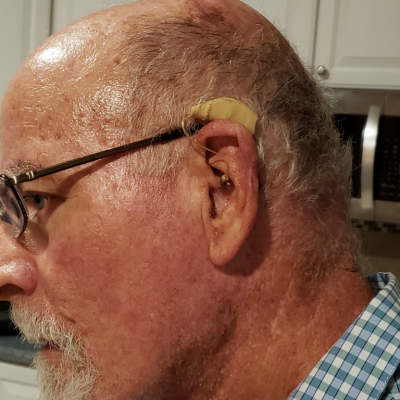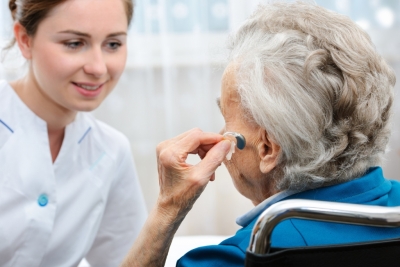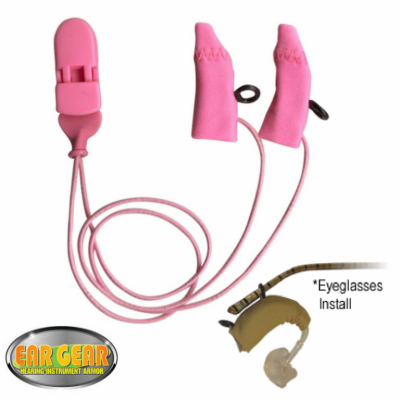Hearts thumping, sweat trickling, steady hands and feet at the ready. We’ve all felt the endorphin rush of athletic exertion; it is one of the few sensations that make us feel most alive.
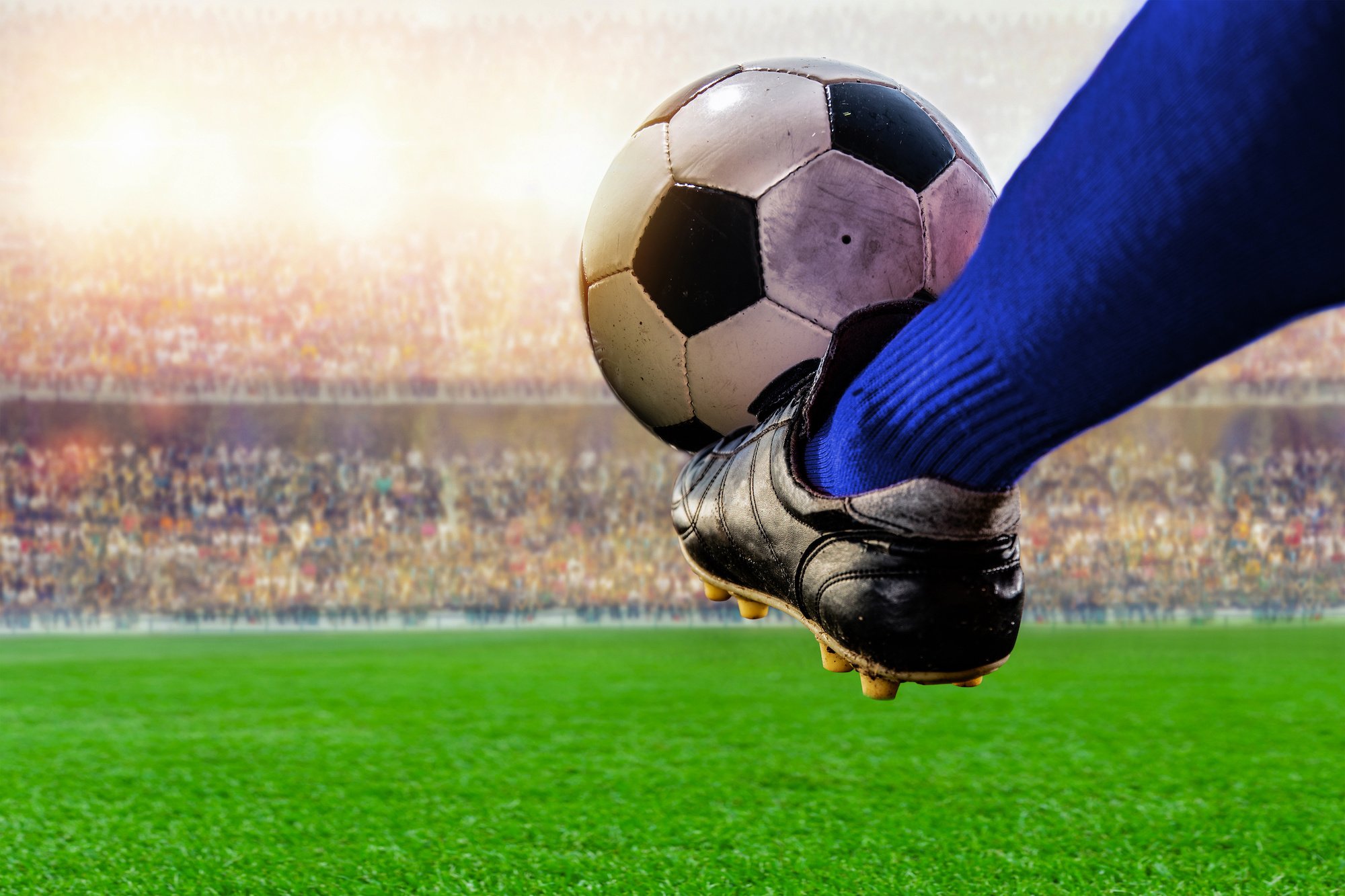
So, when a hearing aid malfunctions in the middle of an important game, perhaps you missing an important call from the ref or not hearing your teammates clearly, you’re left feeling frustrated and empty. As a member of the team, you deserve that feeling of confidence whenever you step onto a field, court, sand, or grass.
Luckily, the challenges don’t have to overcome you; instead, enact simple solutions that can prevent them from ever occurring.
Hearing Aid Challenge: Sweat
The adage “don’t sweat the small stuff” is hard to embrace when sweat is the literal problem. According to the American Speech-Language Hearing Association (ASHA), moisture from sweat is one of the largest problems facing the functionality and longevity of hearing aids.
Moisture can damage a hearing aid’s microphone and receiver, and it’s also toxic to earmold tubing. This damage will make sound intermittent or indiscernible. It may even make the hearing aid stop working altogether.
Solution: Accessories
An easy, cost-effective solution is to simply wear a sweatband, which will stop excessive sweat from entering the hearing aid, and it is widely available at most sporting goods stores.
After the big game, you can try storing hearing instruments in drying containers or try using portable dehumidifier stations; both are great ways to stop moisture accumulation.
You could even opt for waterproof hearing aids, but a less expensive option would be to invest in special sleeves that fit over the aid, like the spandex-nylon sleeves from Ear Gear. You can even customize your sleeves to be in your team colors.
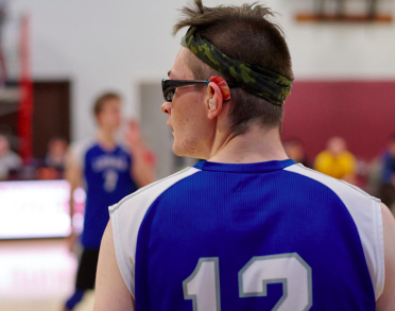
Hearing Aid Challenge: Knocks
If you get knocked down, get back up again, but make sure your hearing aid is functional first! Many sports are contact sports, which means your body will come into physical contact with another player’s body, the result of which can be injury (and not just to your body).
An audiologist with Howard Public County Schools in Maryland, Mary Saylor, says that during gameplay, hearing aids are “...falling on hard surfaces and being trampled.” Damage to hearing aids is costly, so you will want to make sure you can avoid this fate as much as possible.
Solution: Fit
Like most parts of our bodies, our ears are distinct, with unique formations that are entirely our own. If you play contact sports, especially, you want to make sure your hearing aid fits your specific ear shape, which is where earmolds come into play.
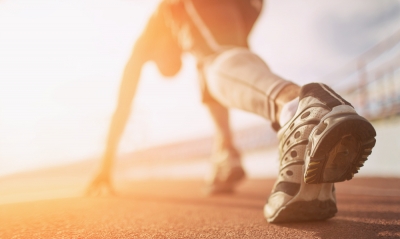
Your audiologist can make an impression of your ear canal and outer ear with a molding mixture, which will be used to create a hearing device that fits perfectly inside your ear. The goal is to have a snug fit without being painful, and earmolds are perfect for that.
On top of the earmolds, cords and clips add extra security during sports like football, rugby, hockey, and lacrosse. They prevent hearing instrument loss if it falls out during a play. Our Corded Ear Gear are perfect for these high-contact sports.
Challenge: Weather
There is nothing like breathing in the fresh air as you exert your body, but if you play sports outside, you must be aware that while you perform, your hearing aid might not be doing so well.
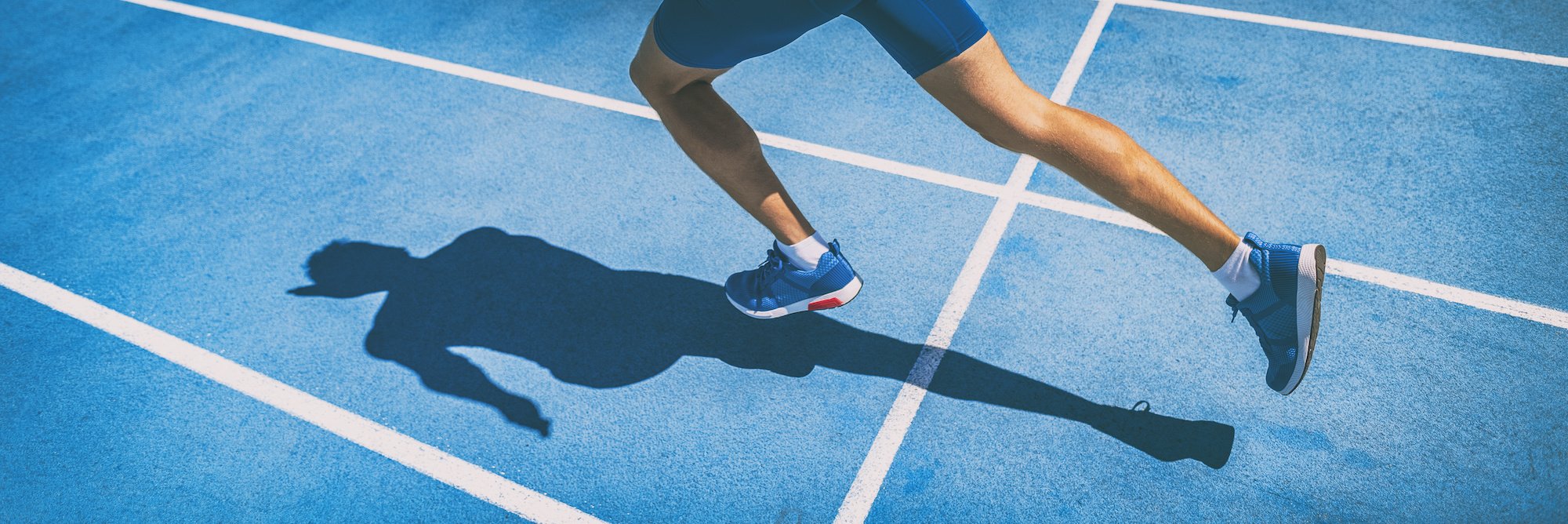
Cold weather can drain your battery of its power quickly, and hot weather can cause excess sweat, causing the aforementioned moisture problem.
Additionally, a windy day can cause disruption and loss of concentration because the sound of the wind through a hearing aid can distort other sounds, making it harder to hear instructions on the field.
Solution: Accessories
It might seem rudimentary, but an easy fix for both the cold and the wind is to simply cover up. Wearing hats, scarves, or earmuffs can act as a barrier between your hearing aid and the elements.
In the same vein, if you already purchased protective sleeves from Ear Gear to help with sweat, then you have also smartly ensured that any negative impact from the elements won't occur either.
Finally, if you purchased your hearing aid five to ten years ago, updating your instrument to a more modern one might be a good idea. Up-to-date hearing aids have wind-reducing technology that enables you to tune out the wind and tune up your sport’s experience.
Challenge: Buildup
You have mud up to your shins after your football game; playing after a rainy day is so much fun! Be that as it may, it’s also problematic for your hearing aid because of dirt buildup. Dirt on the shell of the hearing aid can impact the functionality of certain features, such as volume control.
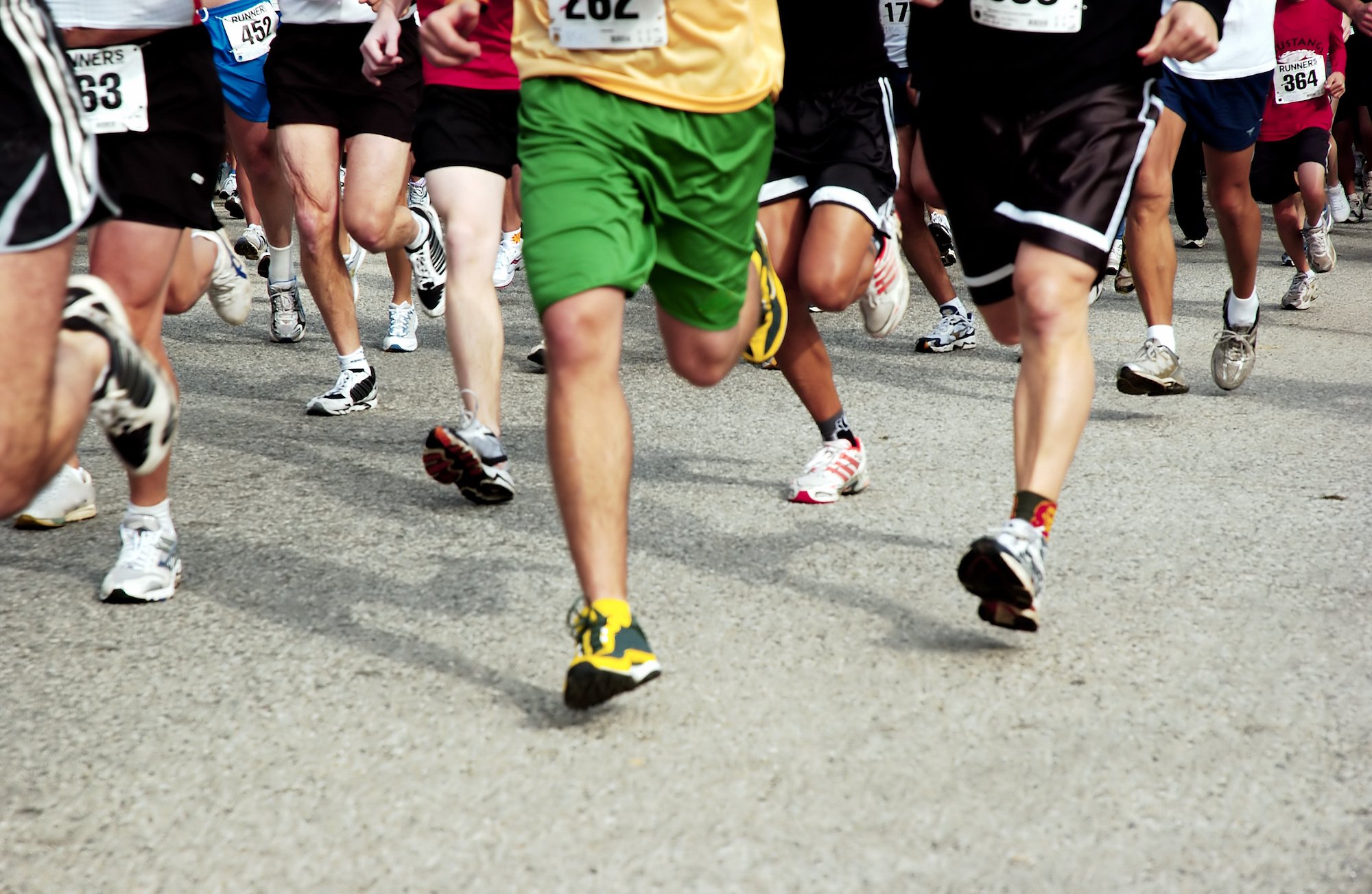
Dirt can also become trapped between the instrument and your skin, especially if you wear behind-the-ear hearing aids. This can cause your hearing aid to become ill-fitted, risking discomfort and loss.
Solution: Cleaning
Before marching those muddy feet indoors, do a thorough inspection of your hearing instrument. According to John Hopkins Medicine, the way to properly clean the shell of a hearing aid involves a special cloth and brush provided to you by your audiologist.
Start by using a gentle wiping motion; if the buildup is stubborn, you can slightly dampen the cloth to remove the rest of it. However, you do not want to completely soak the cloth since water can damage the processing chip inside the hearing aid.
You can also opt to use a cleaning brush, the soft bristles of which can help to remove any dirt or dust particles that accumulate on the shell. By simply taking a few minutes to properly clean your hearing aid, you can avoid the negative repercussions of your muddy football game.
Ear Gear Has the Protection You Need
Hearts thumping, sweat trickling, steady hands and feet at the ready. And your hearing aid, snug in your ear, secured with cord and clip, is ready for action, too.
As Tamika Catchings (former pro-basketball player for the WNBA), Derrick Coleman (former NFL professional football player), and Curtis Pride (former professional baseball player for the MLB) have proven, having a hearing impairment does not make you any less qualified to play a sport.
With the proper care, cleaning, and of course - Ear Gear - you can feel 100% playing your sport, one glorious endorphin-filled game at a time.



